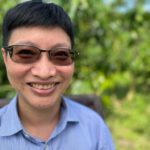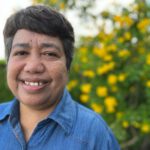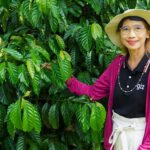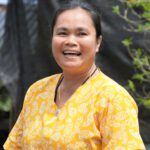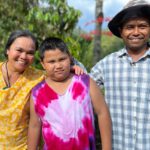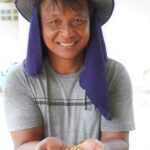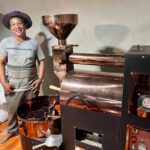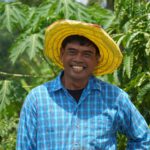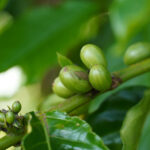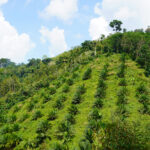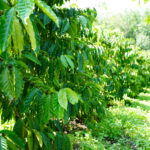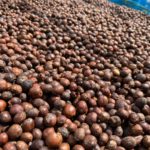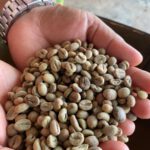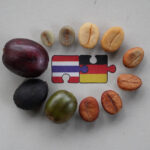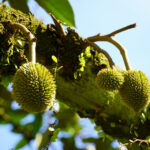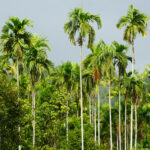Suda Boonsit is the second generation of robusta coffee growers in Ranong’s La-un district. Her mother migrated from the northeastern province of Nakhon Ratchasima in 1985 under a scheme where the government was providing a land plot to northeastern people to allow them to make a living. She was just eight years old when she moved with her mother to live in the rainy mountainous area of Ranong’s La-un District.
She recalls how her mother started from scratch when she began growing coffee, which was one of the key cash crops in the then agricultural policy recommendations that also included other cash crops like rubber and tropical fruits. Years of passion and dedication to the coffee plantation paid off. Today, her whole family can stand on their own feet financially, not only because of her mother as a breadwinner but, most importantly, coffee.
Before she died three years ago, Suda’s mother asked her to continue growing robusta coffee on the family’s 19-rai plot located in the rugged hilly land regardless of its price compared with more profitable crops like Durian. “I still remember my hard working mother driving a pick-up truck on the muddy roads downhill to stay overnight in town just to sell the coffee we grew to the suppliers. Everything we have today is because of coffee. This is how we show gratitude and respect to our predecessors and profession. We believe we can live sustainably with our way of sustainable agriculture,” she said.
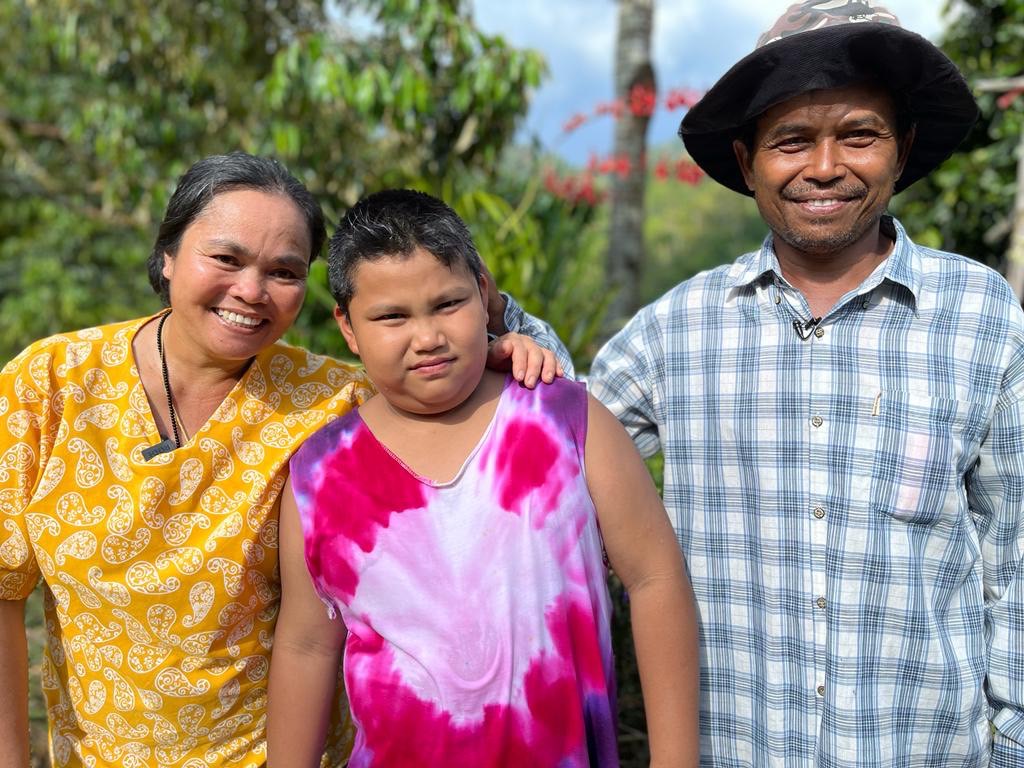
Nowadays, Suda and her husband are continuing to grow coffee while transforming their 19-rai plot into an integrated plantation that features other cash crops like durian, coconut, betel nut and tropical fruits like mangosteen, rambutan, banana and longkong. The couple also learned how to better manage their farmland by participating in the Coffee Plus Thailand programme in 2019.
Suda’s love of reading and writing has been put into “agriprenuer” practice by recording the agricultural costs and expenses and thus keeping track of her household finances.
To effectively establish a public private partnership, the Improving Smallholder Coffee Farming in Thailand Project, also known as Coffee Plus Thailand, has been working with the Ministry of Agriculture and Cooperatives (MoAC) through the Department of Agricultural Extension (DoAE), the Department of Agriculture (DoA) and Nestle (Thai) Ltd for several years through the “Farmer Business School (FBS)”. This is regarded as one of the project’s key components aimed at improving the business and management skills of smallholder coffee growers. Nestle (Thai) Ltd uses the coffee supplied by the farms in this project for its instant coffee production to sell in both the domestic and international markets.
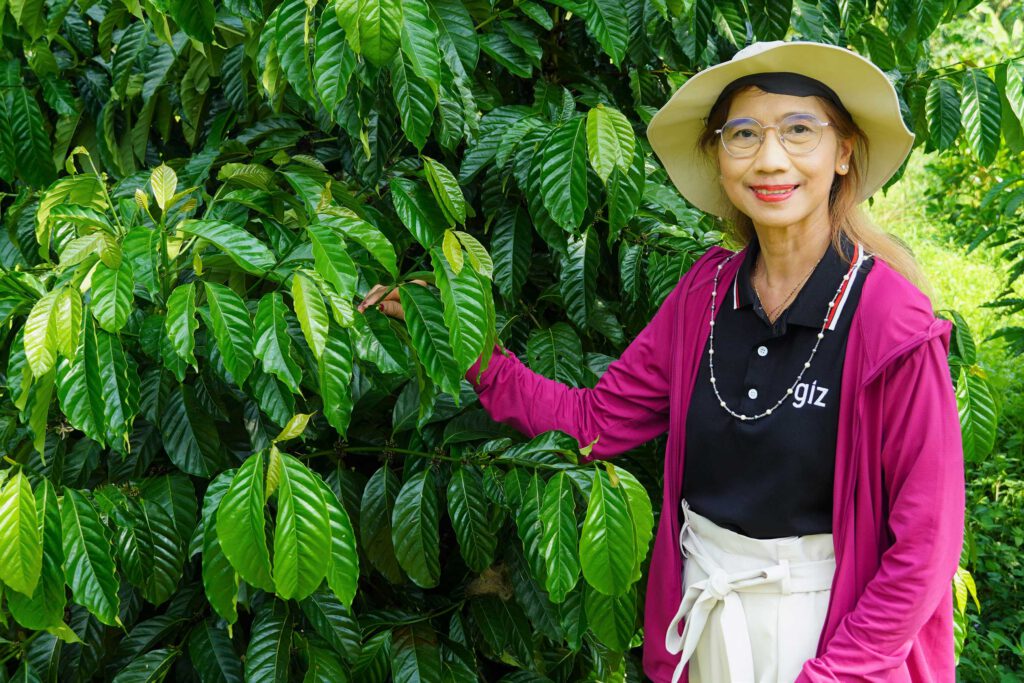
Pouchamarn Wongsanga, Coffee Plus Thailand Project Director, said the goal of the programme is to improve the economic viability of the farming system that will benefit at least 10,500 small-scale coffee farmers in Indonesia, the Philippines and Thailand, 2,000 of whom are in Thailand. Farmers will develop a business mind-set, view “farming as a business”, acquire strong entrepreneurial knowledge & skills and apply these to their planning of activities and expenses, and get more income through a diversified and competitive production system.
The FBS module has enabled Suda and thousands of coffee smallholders in Thailand’s southern provinces of Ranong and Chumphon to learn good management practices. They can plan expenses and learn how to use the right amount of fertiliser for their crops and reduce costs. Farmers thus have higher quality produce to sell and earn more income.
Not just only coffee farmers, but also officials agricultural-related work at the provincial level are trained in the FBS module so that they can continue passing on knowledge and skills learned from the project to support smallholders’ business capacities. This allows both the agricultural extension officers and the farmers to learn how to optimise production costs and improve their incomes.
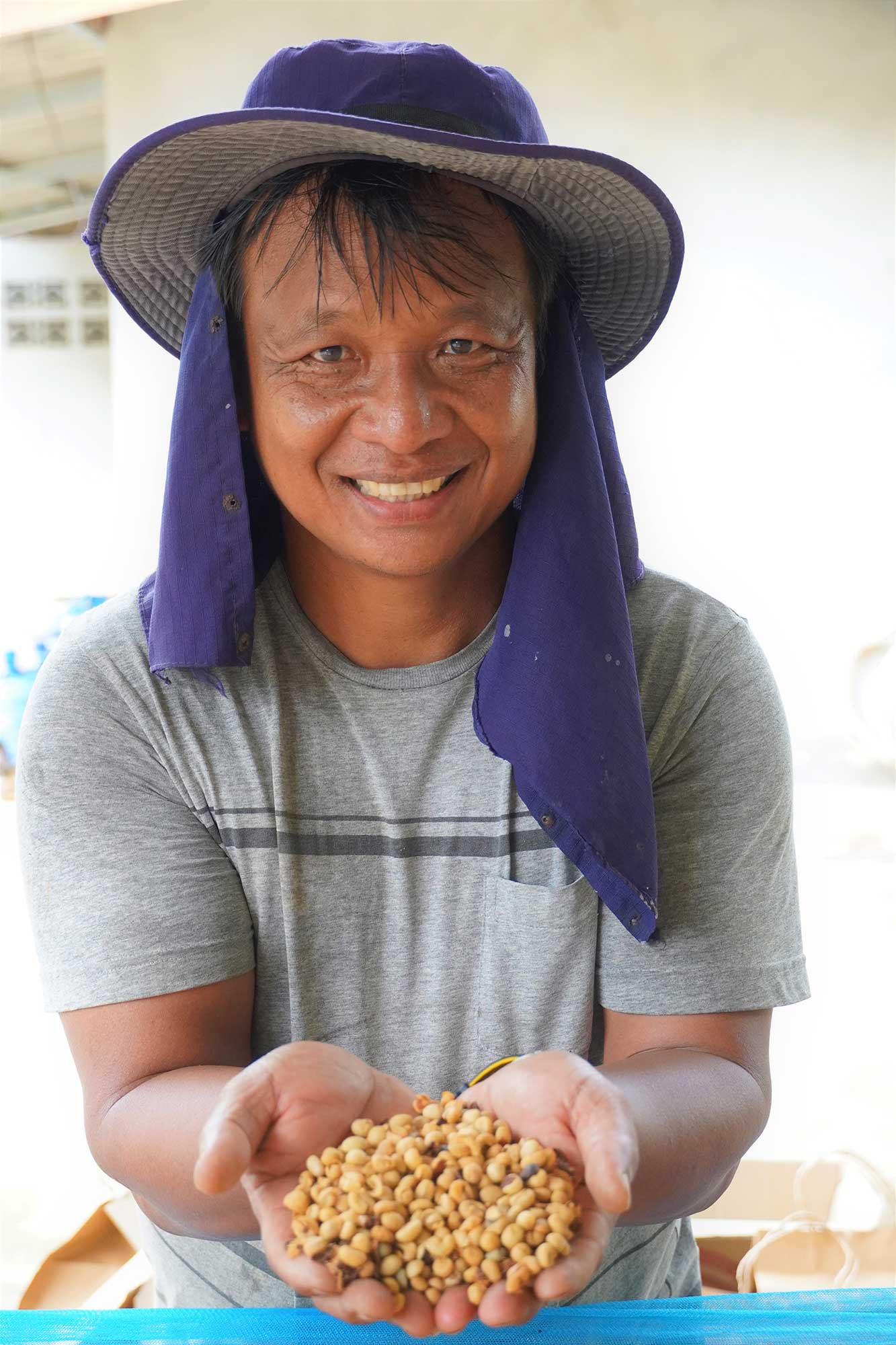
Aware of the hard work required but lacking agricultural-related knowledge for development, he did not hesitate to join a series of FBS training sessions and has been a Coffee+ Thailand member since 2019.
“I love coffee mainly because of my father. Coffee is my passion. I am fascinated right from the first stages of growing it. When I began farming coffee, I knew nothing about marketing and had to start from scratch,” he said.
Yongyuth is determined to upscale his knowledge and put the agripreneur skills learned from the FBS curriculum into practice, think outside the box and go beyond being just a coffee grower. Apart from selling high-quality robusta green beans from 1,500 coffee trees to suppliers, the second generation coffee farmer is proud to call himself a coffee roaster. His business extends to producing roasted coffee beans and tea from dried coffee flowers. His two daughters and his wife support him to enhance his markets through the social media networks.
Today, I have my own equipment, and my products. I am really proud that my passion and hard work have paid off,” said Mr Yongyuth.
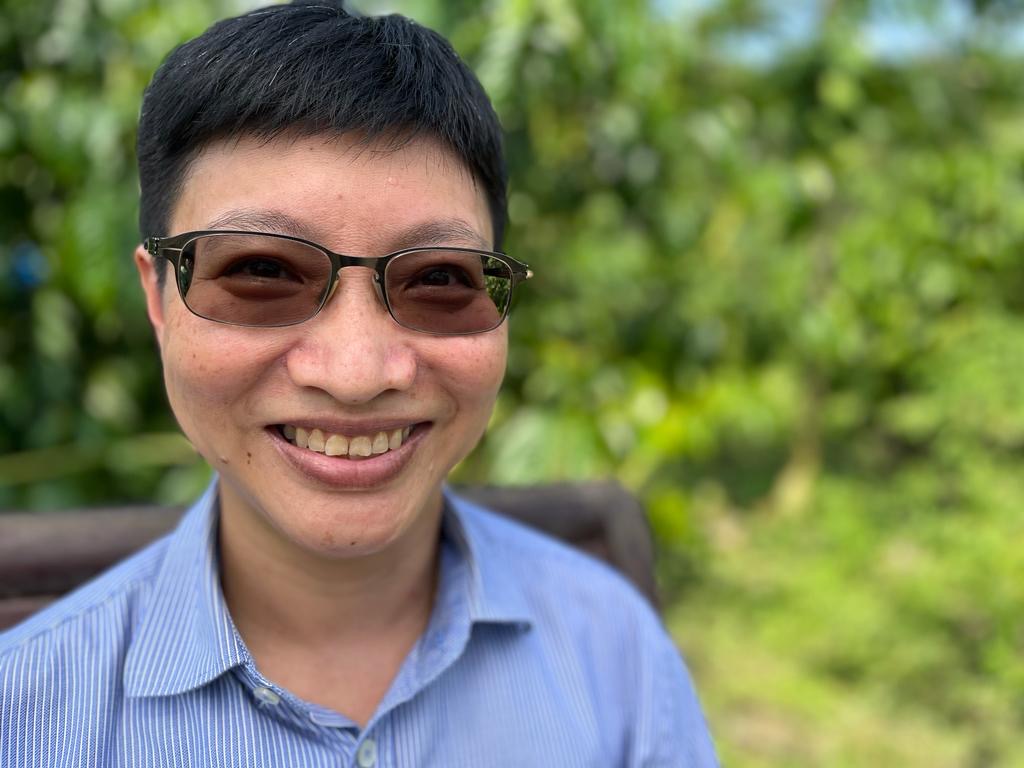
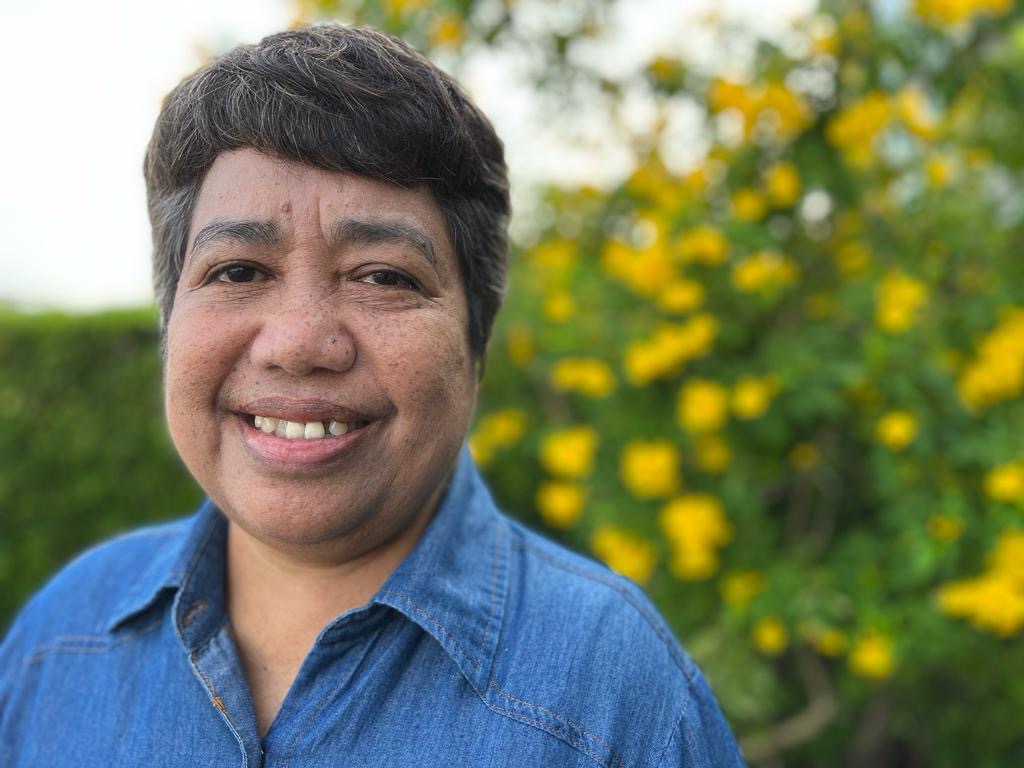
“The farmers have a lot of potential and capability. However, they have limited chances to access skill enhancement activities. If they have good training and a positive attitude, they will meet any challenges and improve their lives,” she said.
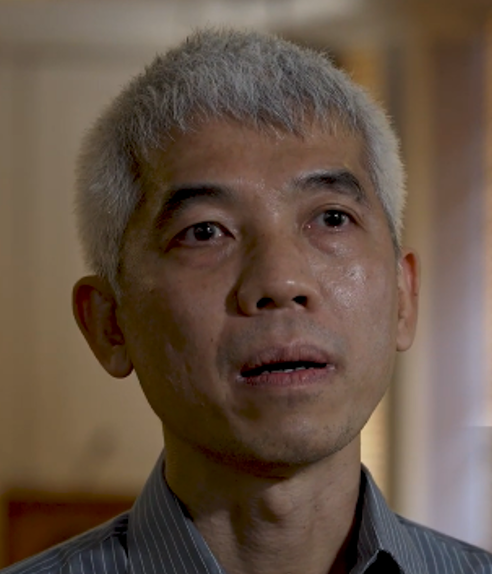
“I am proud of the cooperation we have built between the government and private sectors which will lead to a better standard of living for the farmers by teaching them to practise intercropping to ensure happiness and a year-round income based on sustainable farming,” Ms Pouchamarn, Coffee Plus Thailand project director said. ■

